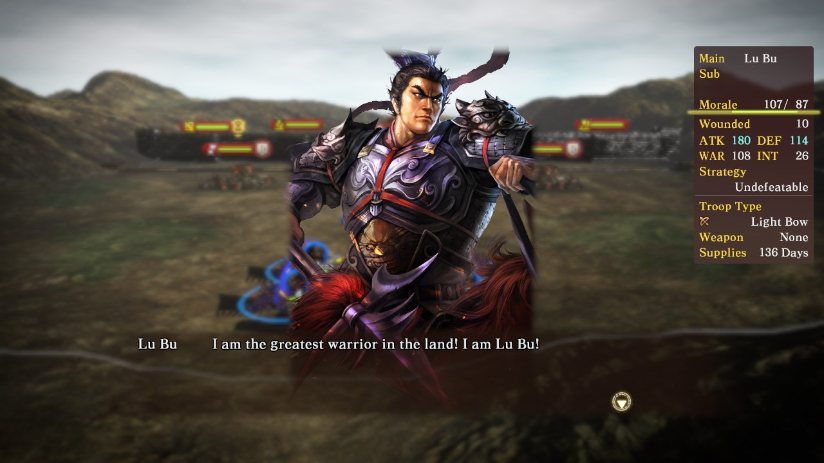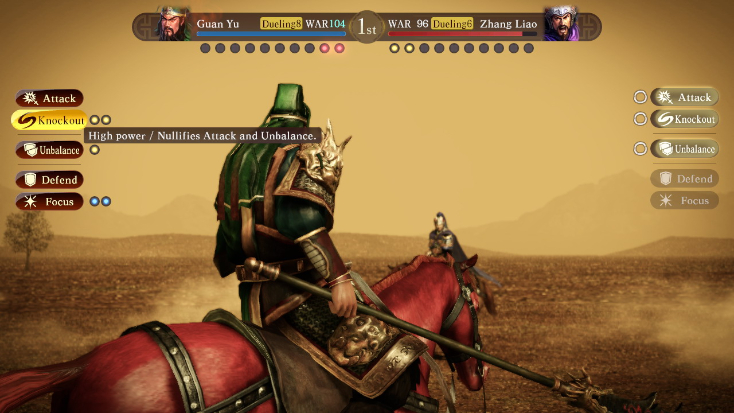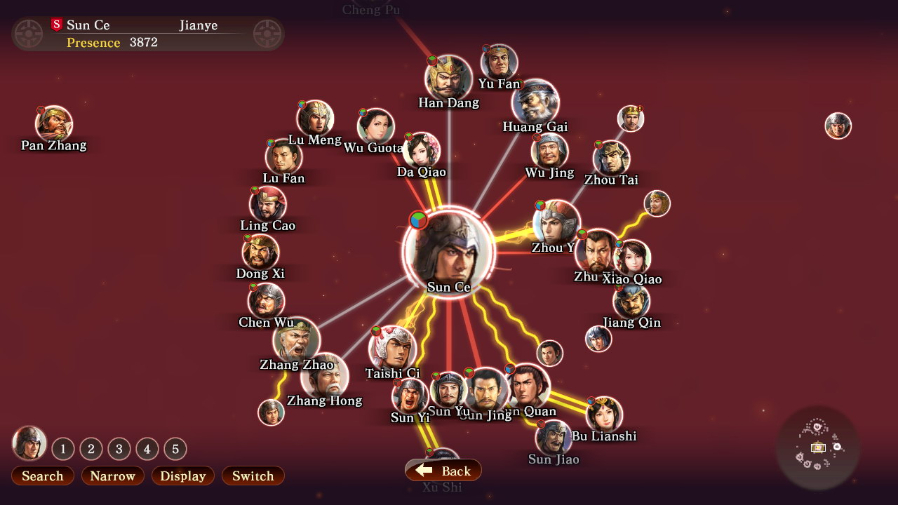I’m not really one for strategy games. I don’t own or play many of them; I just can’t get into them. I thought I’d give this one a go, and to my surprise, it was very enjoyable. This is Romance of the Three Kingdoms XIII, also known as Sangokushi 13, the 13th installment of the series by Koei. The game has multiple gameplay options, starting with Hero Mode, a tutorial of sorts. In this, you play as iconic characters from Chinese history, running on a linear timeline. This includes detailed descriptions of each aspect and each process within the game, such as fighting and debates. This helps newcomers to the series familiarize themselves to how the game works. Throughout Hero Mode, each playable character from one of the three dynasties, and each character has different traits, being more influential in different parts of the game, or different motivations. You learn this along with their backgrounds and preferences while you play, bettering your kingdom and conquering others.
The large amount of information thrown at you in the early stages of gameplay can be very overwhelming, especially to newcomers, though a lot of it can be disregarded if you’re not sure what is going on. Along with this, you can choose the Edit Officer option, allowing players to create their own characters based on the traits they like or having realistic stats, or just maxing them all out for the fun of breaking the game. This custom character can be transferred to the main game, made up of 3 scenarios; The Three Kingdoms period, The Yellow Turban Rebellion and The Anti Dong Zhuo Coalition. The player can then assign them to an allying kingdom or create an independent one from scratch.
As said, having different traits can affect how your character does in different situations. For example, if I wanted to bring a new policy to a kingdom, I may have to compete in a debating minigame for my decisions to be taken into effect. In this minigame, you verse an NPC in a rock-paper-scissors-esque game using moves like assertion, provocation, proclamation and rebuttal, each of which may cancel out another of the opponent’s moves. Each move requires a certain amount of focus to cast, which is earned from certain moves. Strong high-focus required moves will do significant damage to the opponent, depleting their health bar. After 5 rounds, whoever has the most health will win the debate. The same process is included with duels, though with different moves. These duels can happen randomly while travelling if you bump into a bandit, or with another officer if necessary.
Rank matters in the game as well. For example, when fighting out on the field, like a generic strategy game, your rank may affect how much you control during war, being just a group of soldiers or the entire army. The same techniques apply during this mode as other strategy games. Select a group, or multiple, and make them attack the opponent’s forces or bases. This whole process is running on Morale. If an opponent’s officer is killed, or a base is taken, the opponent’s morale drops, meaning their troops will do less damage and have less damage reduction. The opposite of which happens to your own troops if you do well. The officers in your troops may activate special abilities, boosting the status of your other troops, being increased defense, for example.
The graphics of the game are extremely beautiful. The characters drawn with such precise detail, as well as the map having a high-definition feel, even when completely zoomed out to a complete birds-eye view. The completely animated sections of debating or duels are done very smoothly, allowing the whole game experience to feel real, and without fault. The sound is also done extremely well. The dialogue is all in Japanese, but with English subtitles and menu options. Having another language for the dialogue adds to the story, relating it to the style of the game. The clashing of swords during duels is a very satisfying sound, as well as smaller things like the battles during the war out on the field.
Strategy games aren’t for everyone, and especially not for me. I only find a few of them enjoyable, but can’t play them for too long. But this game may make an exception to the rule. I think this is more targeted at the long-term fans of the Three Kingdoms series, to those who know more about the lore and the style of the game. Personally, this game is not worth the roughly £40 on all consoles. In my opinion, I would look at the other games in the series before going straight for the thirteenth one, as you’ll get a hang of it sooner.
The gameplay, graphics and sounds are all incredible, though not entirely my cup of tea, but then again, I don’t like tea. Overall, I’d gave to give it a 7/10, made up of the enjoyable parts of dueling and debating and the incredible graphics and animations to go with it.














You must be logged in to post a comment.